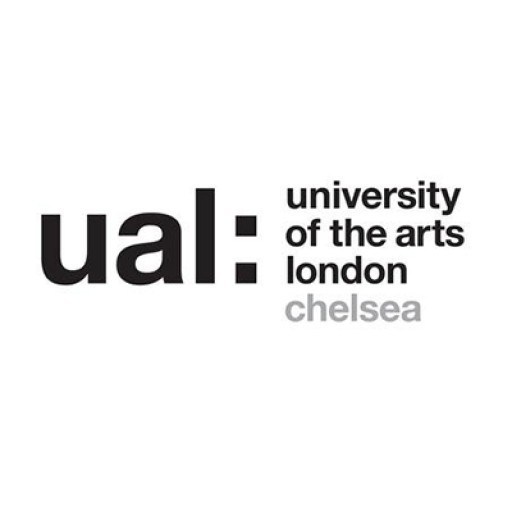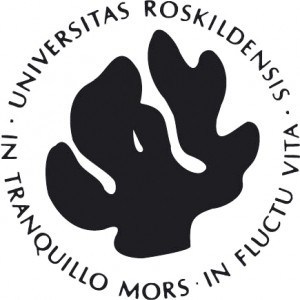Photos of university / #aaltouniversity
Spatial Planning and Transportation Engineering is a multidisciplinary master's degree program offered at Aalto University that prepares students to design, develop, and manage sustainable urban and regional environments. This program combines principles from urban planning, transportation engineering, environmental sustainability, and land use management to equip graduates with the skills necessary to address complex challenges related to mobility, land use, and sustainable development in both local and global contexts. Students will learn to analyze spatial data, develop innovative transportation solutions, and implement planning policies that promote efficient, accessible, and environmentally friendly urban environments. The curriculum emphasizes a combination of theoretical knowledge and practical skills, including Geographic Information Systems (GIS), transportation modeling, land use planning, and environmental impact assessments. Through coursework, projects, and collaboration with industry partners, students gain hands-on experience in designing integrated transportation systems, sustainable urban development strategies, and smart city solutions. The program also focuses on fostering a critical understanding of societal, economic, and technological factors influencing spatial planning and transportation. Graduates are prepared for careers in urban and regional planning agencies, transportation authorities, consulting firms, and international organizations, where they can contribute to creating sustainable, resilient, and innovative urban spaces. The program encourages international mobility and interdisciplinary collaboration, providing students with a global perspective on urban challenges. With its strong emphasis on sustainability and innovative design, the Degree Programme in Spatial Planning and Transportation Engineering at Aalto University offers a comprehensive education for those seeking to shape the future of urban life through sustainable and efficient transportation and spatial planning solutions.
Common studies (40 cr) include seven courses, which are all compulsory. These studies form the foundation of spatial planning and transportation engineering studies upon which different profiles of expertise can be built through selected advanced and elective studies. The advanced studies (25 cr) include seven courses. The elective studies (25 cr) can be chosen freely, although students are offered guidance. Please, see more about the programme and courses in the student portal Into.
Master’s thesis
The master’s thesis (30 cr) is a piece of applied research that includes not only the written thesis but also the maturity essay and seminar presentation or a corresponding presentation. The key goal of the master’s thesis is solving a problem relevant to the field of study based on existing scientific knowledge in compliance with the principles of responsible conduct of research. The goal is to produce a scientific thesis. The master's thesis shall be written on a topic related to the advanced studies of the degree programme, agreed upon between the student and the supervising professor. A suitable topic can, for instance, be a research and development project carried out for a partner outside the university, or it can be connected to an ongoing research project of the Department. The master’s thesis takes 6 months (fulltime) and it is an individual project.
Student selection
The selection process is paper-based. Applications that pass the eligibility check of Aalto University Admissions Services (administrative evaluation) proceed to the School's programme specific academic evaluation.
The following academic evaluation criteria applies:
- Degree and institution of higher education
- Relevancy of studies
- Academic performance
- Motivation Motivation_letter_2017-pdf
Academic evaluation is split into two phases:
- In the first phase, the applicant’s degree that is used as grounds for the application and the related institution of higher education are evaluated. The applicant’s academic performance is evaluated, while any of the applicant’s other education that is attached to the application may also be evaluated. Criteria used to evaluate academic performance may include the time taken to complete the degree as well as the date of the degree’s completion.
- In the second phase, the acceptable applicants are ranked. A number of eligible applicants no greater than the allotted quota are admitted based on the academic evaluation. The most important criteria are the applicability of previous studies and academic performance in studies relevant to the study option. The aim is to admit only those applicants who have the required competence to begin studies without any supplementary studies.
Your study background can be in urban and land use planning or transportation engineering, but also a variety of studies in other fields related to planning and transportation engineering could prepare you for the programme. These studies can include, for example, architecture, geoinformatics, environmental studies, social studies, economics and geography.
Financing studies for the Master's Degree Programme in Spatial Planning and Transportation Engineering at Aalto University are structured to support students through various channels of financial aid. Prospective students are encouraged to explore scholarship opportunities offered by the university, including full and partial scholarships based on academic merit, need, or specific eligibility criteria. The university also participates in national and international scholarship programs which applicants can apply for, potentially covering tuition fees and sometimes living expenses.
Typically, Finnish student financial aid is available for residents of Finland or the European Union/European Economic Area, and it includes a combination of a study grant, a housing supplement, and a student loan. International students from outside these regions should verify their eligibility for Finnish study grants beforehand, as requirements may vary.
In addition to scholarships and financial aid from the university or government, students may seek external funding sources such as private foundation grants, sponsorships, or employer-sponsored education funds, depending on their individual circumstances. The university provides guidance and resources for students on financial planning and applying for various forms of financial support.
Part-time work opportunities are also available for students to supplement their income during studies, especially those who hold residence permits permitting work. Typically, students can work part-time around their studies, with flexible hours that do not interfere with their academic progress. The cost of living in Finland is an important consideration; students are advised to budget for accommodation, food, transportation, and other daily expenses.
Overall, financing studies in the program involves a combination of university scholarships, national aid, external funding, and personal income through part-time work. Students are encouraged to start exploring funding options early in the application process and utilize the university's resources to make informed decisions regarding their financial planning.
The Master’s Degree Programme in Spatial Planning and Transportation Engineering at Aalto University is a comprehensive and interdisciplinary programme designed to prepare students for careers in urban development, infrastructure planning, and transportation systems. The programme emphasizes sustainable and innovative solutions to address the challenges of modern urban environments, including mobility, resource efficiency, and environmental impacts. Students gain expert knowledge in spatial planning processes, transportation engineering, urban design, geographic information systems (GIS), and policy-making, enabling them to contribute to the development of livable, functional, and sustainable cities. The curriculum combines theoretical studies, practical projects, and collaborations with industry partners, offering a multidisciplinary perspective that integrates technical, social, and environmental considerations. Students have access to state-of-the-art laboratories and software tools to support their research and project work. The programme also fosters critical thinking, problem-solving skills, and teamwork abilities essential for working in complex urban systems. Graduates of the programme are well-equipped to pursue careers in urban planning agencies, transportation authorities, consultancy firms, and international organizations, or to continue their academic pursuits through doctoral studies. The programme is offered in English, attracting students from around the world, and features a close-knit academic community with a focus on innovative and sustainable urban development. It typically spans two years for full-time students and includes a master’s thesis that allows students to specialize in areas of personal interest within spatial planning and transportation engineering.









